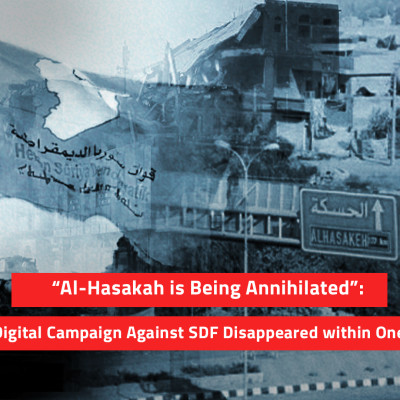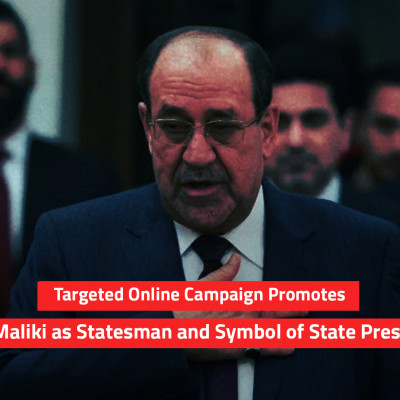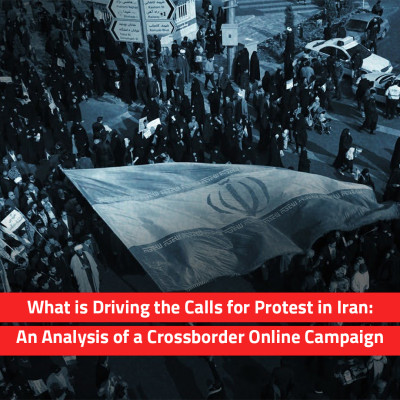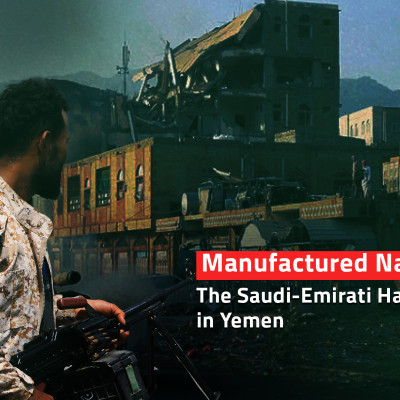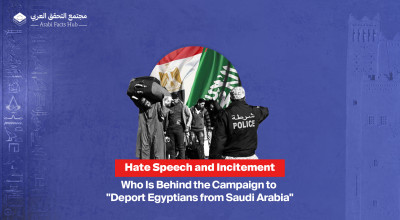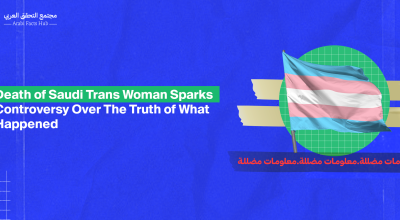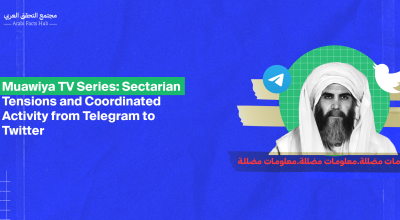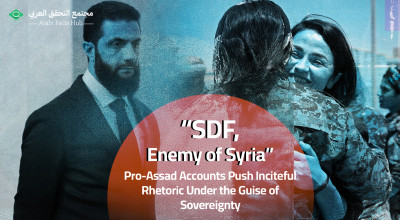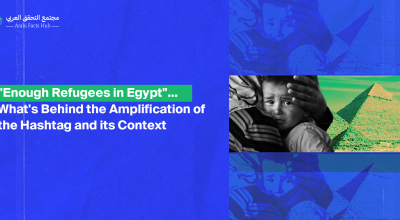“Qatar Gate”.. Despite an official restoration of Gulf ties with Al Doha, a tense virtual legacy remains
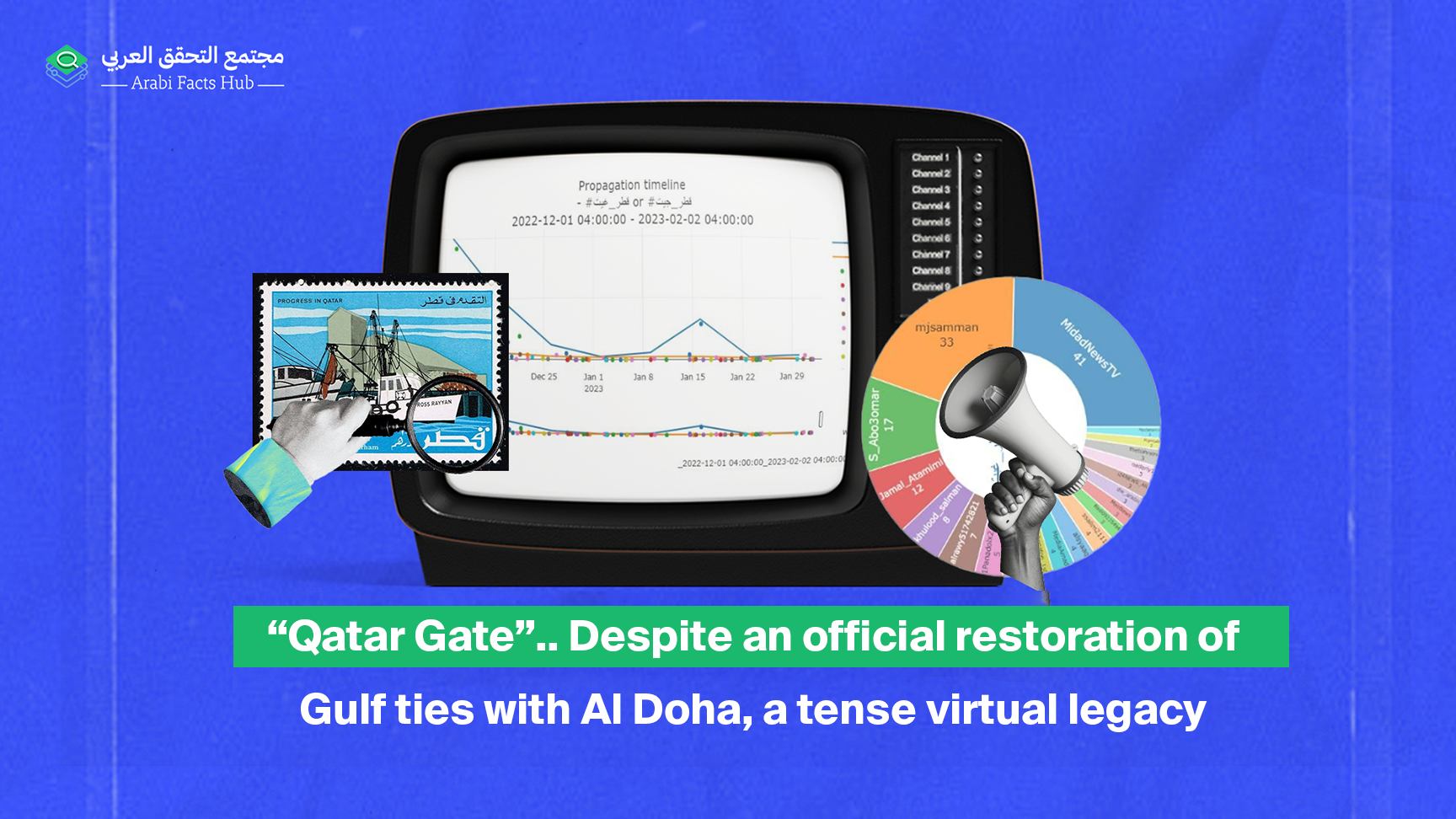
This is part of a series of investigative reports published in collaboration with Daraj media
Despite Gulf reconciliation, several pages and accounts that were part of previous campaigns against Qatar participated in a wave of tweets on hashtags related to a corruption case that was brought against Al Doha in the European Parliament. Some of these accounts are of Saudi platforms, while others are of individuals from Bahrain and Syria.
On 12 December 2022, the European Parliament announced that it was commencing an internal investigation into a corruption case that is related to Qatar, and a number of European Parliament representatives who are accused of influencing European nations to favor Qatar in the hosting of the World Cup. The investigation raised wide controversy over the level of corruption among policy legislators in Europe.
In parallel to the announcement, the hashtag # Qatar Gate started circulating in a noticeable manner. The hashtag was used by accounts that were active in previous anti-Qatar campaigns during the period between 2017 and 2021, when four nations, namely Saudi Arabia, the UAE, Bahrain, and Egypt, were boycotting Qatar.
On 2 February 2023, the European Parliament decided to waive the immunity of the two members who were implicated in the corruption scandal. As investigations continue to date, so has activity on the hashtag. Arabi Facts Hub has analyzed this activity and its most prominent contributors.
What happened?
Saudi Foreign Minister, Prince Faisal Bin Farhan, announced in a press conference dated 5 January 2021, that Qatar and the four boycotting countries have decided to “completely set aside our disagreement”. Following that, state officials of the five countries started resuming official visits, and attended national, regional, and international events together. The same media machines that dedicated their platforms to launching sharp criticisms to the disagreeing countries, now cheered on as officials resumed their engagements.
Social media was one of the battlefields of this virtual war. Armies of accounts and electronic bots were drummed up to contribute to the strife, before things returned to normal between Qatar on the one hand, and its Gulf neighbors plus Egypt on the other.
While it is true that diplomatic ties were restored, the accounts along with activity on the hashtags #Qatar Gate remained. Together two variations of this hashtag gathered 2300 tweets, and 3383 likes.
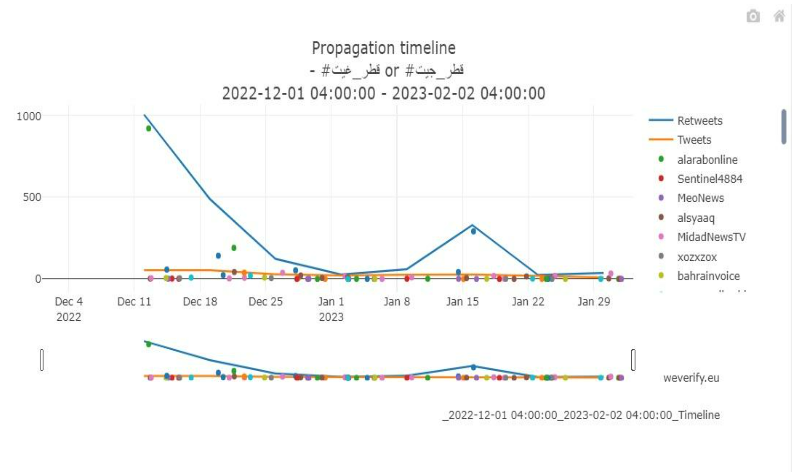
InVID infographic showing activity on the two # Qatar Gate hashtags
Most active users were past contributors to previous campaigns
The # Qatar Gate hashtags saw participation from accounts that were involved in previous electronic campaigns with a focus on criticizing Al Doha, and supporting the boycotting nations.
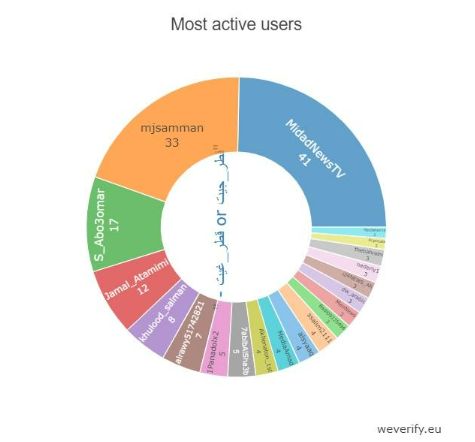
InVID infographic showing the most active users on the # Qatar Gate hashtags
Among the most active users is @MidadNewsTV, with 41 tweets. The Twitter bio for this account states that it is “a platform specializing in sharing videos and news to reveal terrorism and its supporters and financiers.” Accounts with a similar handle exist on YouTube and Facebook. All were created in August 2017, two months after tensions started, when the Gulf capitals and Egypt started criticizing Qatar and accusing it of financing terrorism, which accusations Qatar has denied.
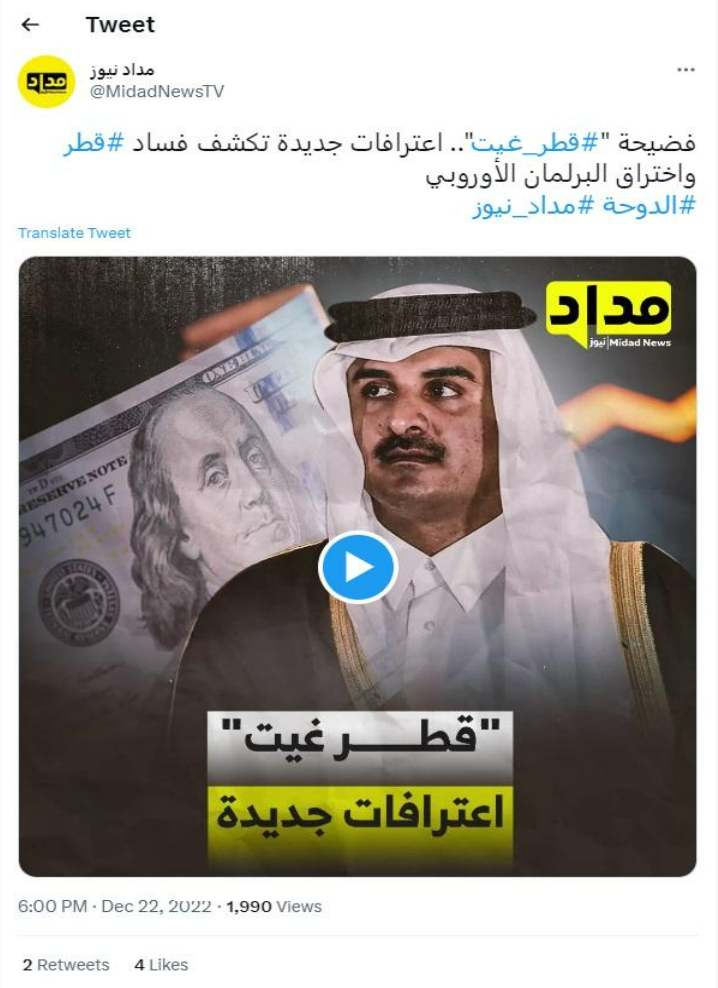
The Midad News accounts do not specify the country where it was launched in any of the bios on the different social media platforms, with the exception of Midad’s YouTube channel, where under location Saudi Arabia is specified. It is worth noting that during the years of the crisis with Qatar, a number of websites and platforms emerged with Saudi and Emirati financing, and an Egyptian workforce. The same was true for Qatari backed accounts
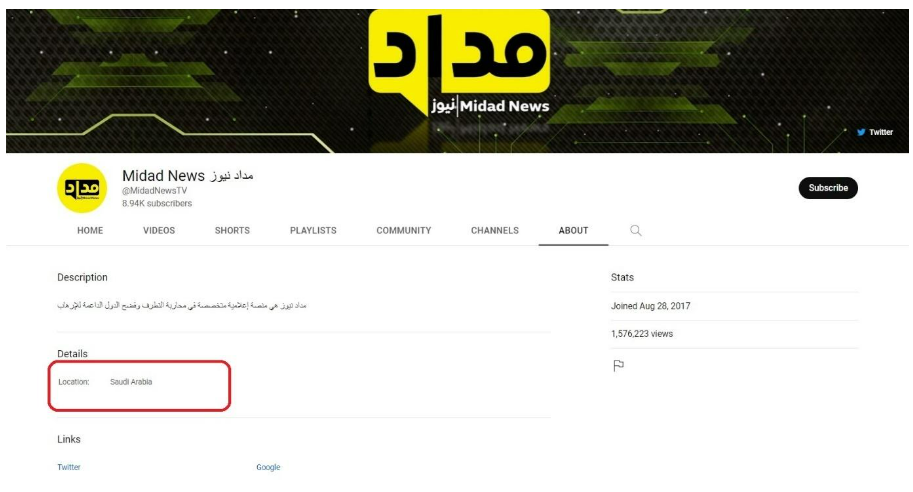
Midad News enjoyed wide interest from Egyptian and Arab media platforms during the years of the crisis, and Midad’s reports and features shaped coverage in these countries. This attention was not limited to the platform’s video content, but it extended to Midad being cited as a reliable source in coverage of issues in Yemen, Libya, and Turkiye, and in “unmasking the sponsors of terrorism”.
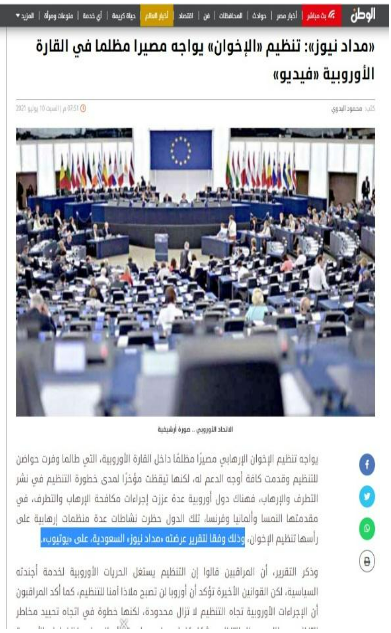
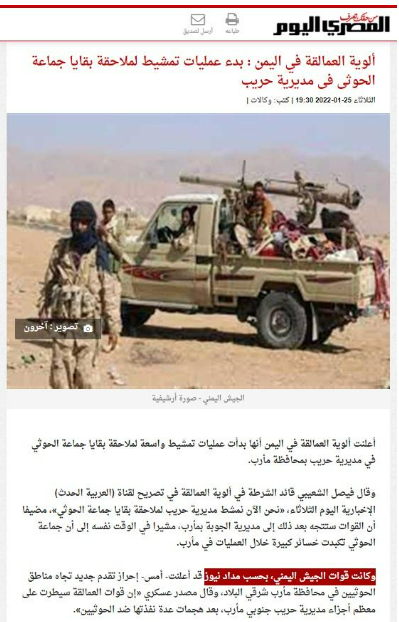
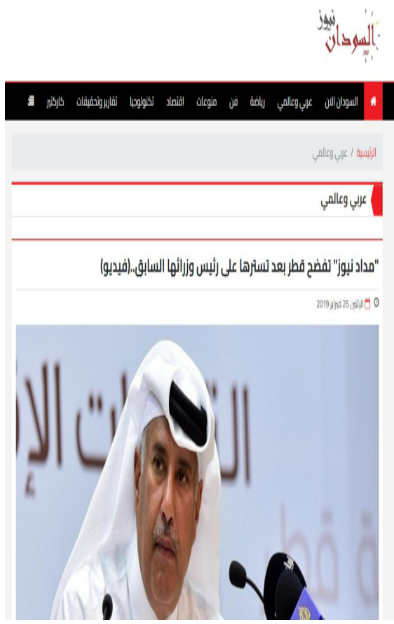
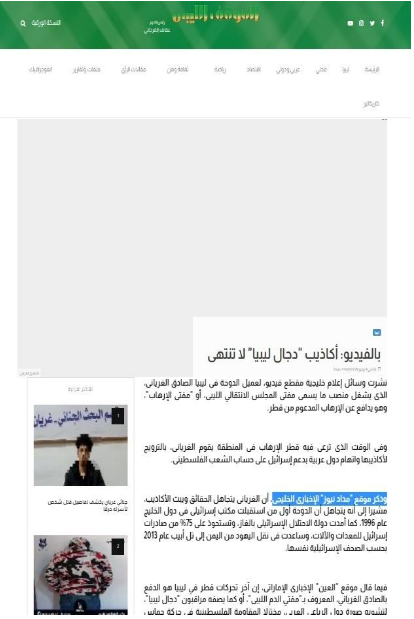
Screenshots from Egyptian press websites Al Wattan, and Al Masri Al Yawm, as well as Sudan News, and the Libyan Position.
Midad’s coverage is not limited to Qatar and the Arab region, as the platform has also published video reports on world events, such as the war in Ukraine where coverage tends to depict Russia in a positive light and propagate conspiracy theories.
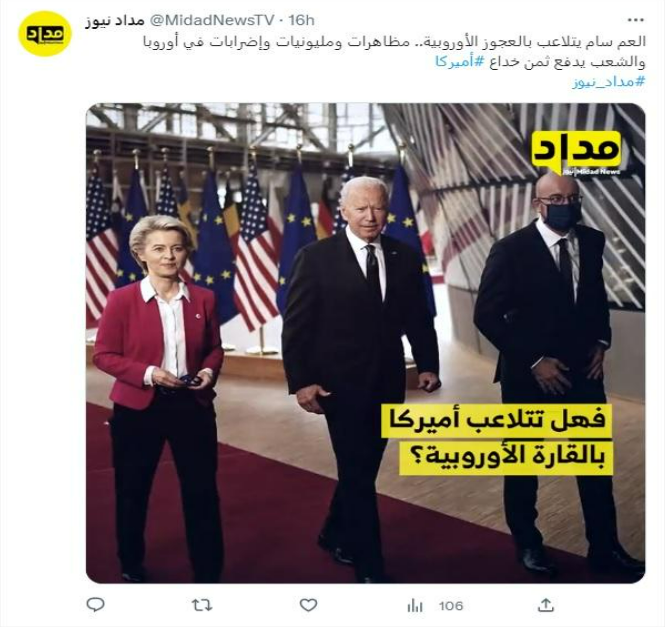
Egyptian, Syrian, and Bahraini accounts
In addition to Midad News, some individual accounts were excessively active on the Qatar corruption case hashtag. The activity of these accounts on Twitter indicate that they are of Egyptian, Syrian, and Bahraini origins. It seems that coincidence has placed them in the front lines of the virtual battle since its outbreak.
One of these accounts is Mohammed Jihad Samman, a Syrian who used to work in Qatar before leaving it to the United States after being subjected to injustice and denied travel for a year as a result of a dispute with a Qatari bank, which Samman claimed is connected to a powerful royal. Samman’s avatar is the Saudi flag, and he defines himself on his account (@Mjsamman) as “an expert of Arab-American issues, monitoring cases before American courts, founder of the Strategic Dialogue Forum, and researcher on fifth generation warfare and terrorist groups.” Samman frequently publishes tweets that are critical of Qatar, and he follows cases that are raised against the state in the US. He also tweets favorably on Saudi Arabia and follows Midad News’ account on Twitter.
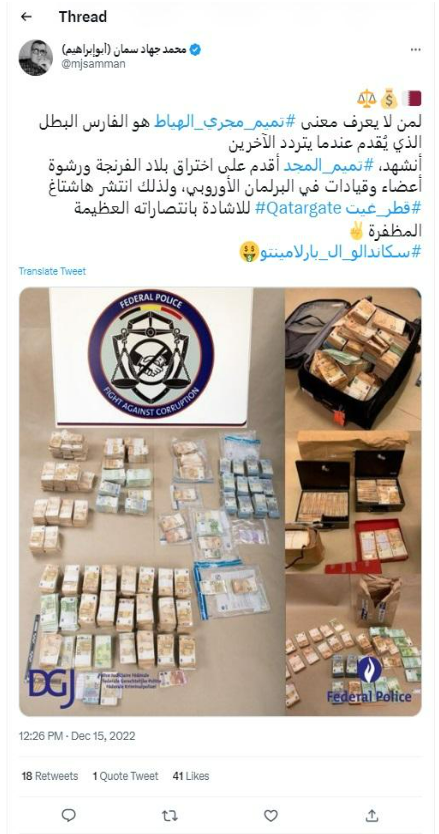
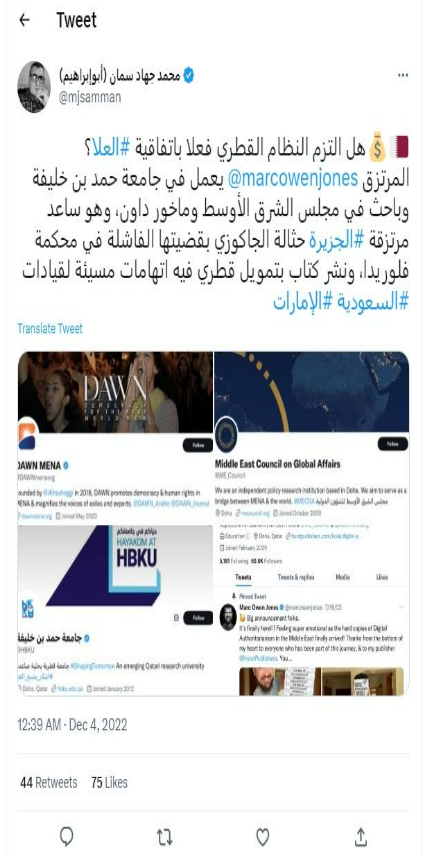
Another account that is on the hashtag is @khulood_salman, who has the Bahraini king’s photo as his avatar, along with the phrase “Protect Bahrain” and the flags of Saudi Arabia, the UAE, Bahrain, and Egypt. His content is focused on the crisis with Qatar, Bahrain’s official position vis-a-vis Iran, in addition to some other regional issues.
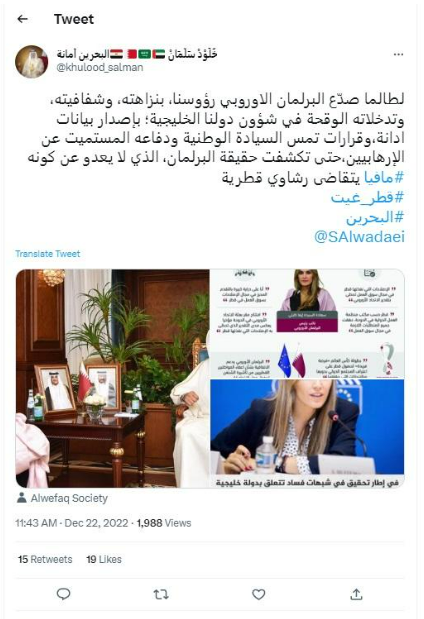
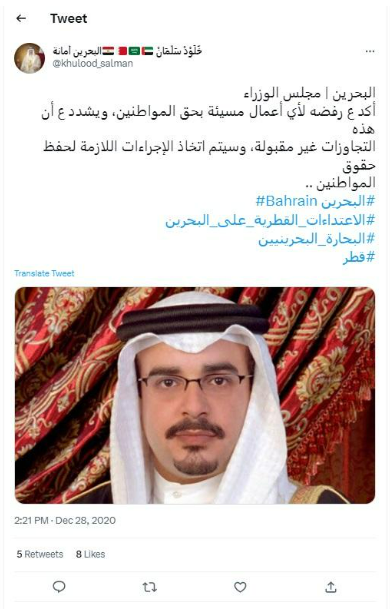
There were also tweets by Egyptian accounts which were mainly active in commenting and responding to accounts with close ties to the Qatari Government. @Akhenaton_1st is an example. When Zaid Benjamin, a tweep known to be close to Qatar, tweeted on Saudi Arabia, @Akhenaton_1st responded with content containing the # Qatar Gate hashtag
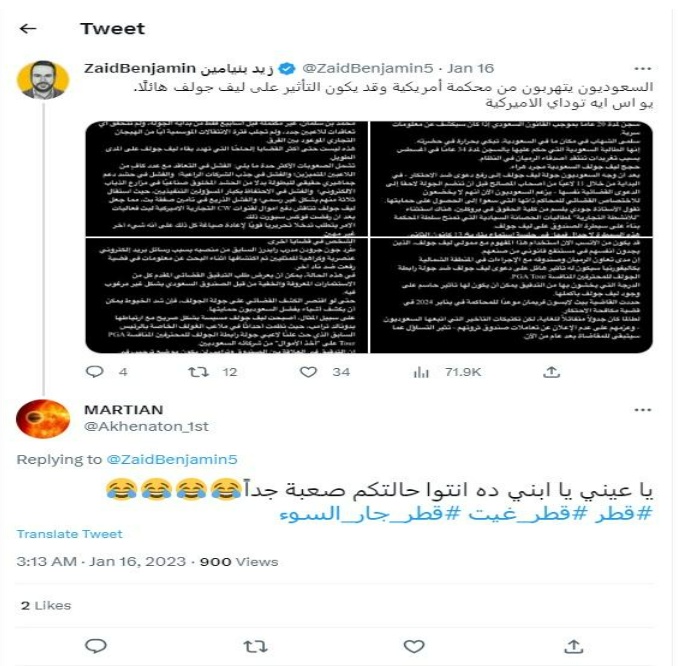
Saudi journalist in a tweet wave: Did reconciliation erase disagreements?
A number of Saudi journalists participated in a tweet wave regarding Qatar’s European Parliament corruption case. Activity on a variation of the # Qatar Gate hashtag reaped 3400 tweets, most of which were retweets, as well as 4490 likes.
Saudi journalist Abdel Aziz Khamis, who resides in London, tweeted 91 times out of a total of 158 tweets, which is an indication of his dedication to this case.
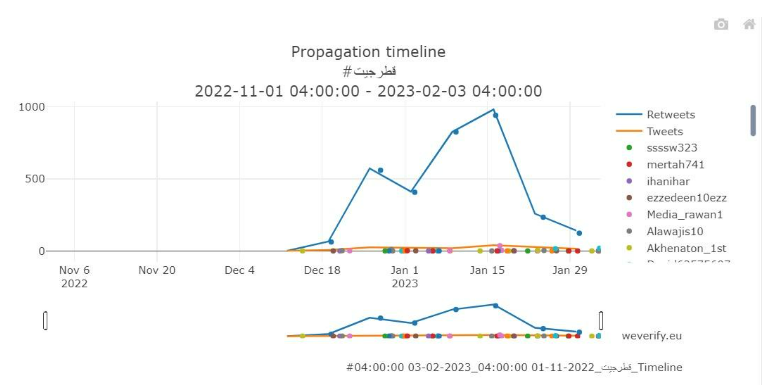
In one of his tweets, Khamis, who has over 300 thousand followers, referred to the criticism he receives from Qatari nationals because of his focus on the case. In his response, Khamis made mention of the murder of journalist Jamal Khashoggi in the Saudi consulate in Istanbul on 2 October 2018, reminding followers of the manner in which Al Jazeera covered the incident and emphasized it. He said “I don’t understand why the brothers in Qatar are angry at me for relaying European media coverage … I do so to bring to the table another perspective… did they forget what they used to do during the Khashoggi case, may he rest in peace, and others… did they forget the role of their Al Jazeera, and their claims that this was merely freedom of speech, and that Al Jazeera was born free - except when it comes to Qatar. Let us all bask in freedom, brothers”.
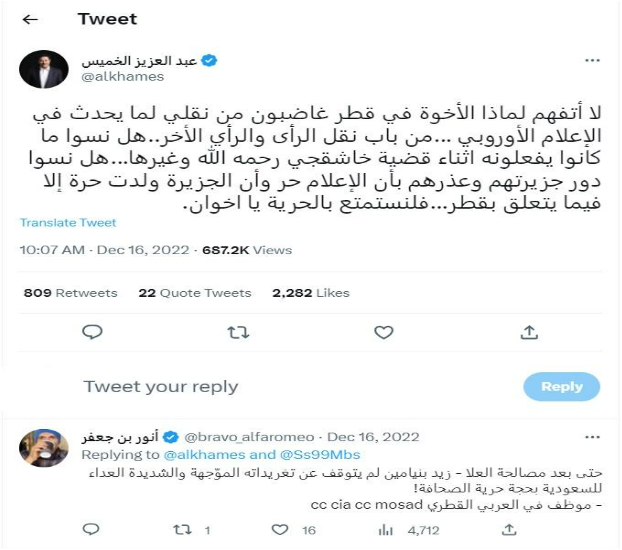
Despite the Gulfi reconciliation, pages and accounts that were active in previous campaigns against Qatar still participated in a tweet wave on the European Parliament corruption case in which Qatar is implicated. Some of the accounts are of Saudi platforms, others are of Bahraini and Syrian individuals. Photographic content was used in tweeting on that hashtag, with reference to reports by European media. Saudi journalists also participated in tweeting on the case. The rate of retweets was considerably higher than that of the original tweets.
